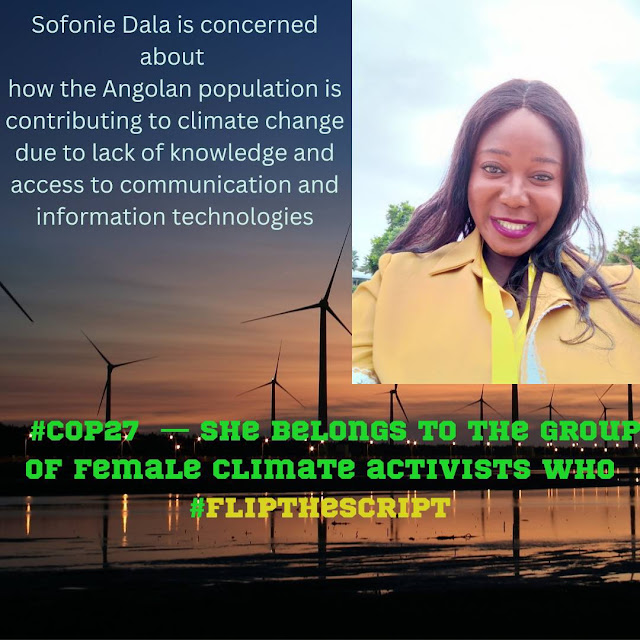How is climate change affecting Angola and what are you doing to flip the script?
Climate change is becoming a very serious matter for the whole world. Unfortunately, many people still don't know about this, they don't know what climate change is and what causes it. Worst of all, these people who lack this knowledge are the same people who cause environmental pollution and climate change, simply because they are unaware of the consequences of their actions. Then the problem becomes even more complicated.
For example, here in my community, we continue to produce tons of garbage daily, there are a lot of plastics in every corner, people are not even aware of the damage that plastics cause to the environment.
People continue to cut the trees in their backyards and around their homes, burn the trees, without any knowledge that the trees would provide them with oxygen and protect them from global warming.
Gardeners and men are hired to cut down trees and destroy biodiversity, all of which are the result of a lack of knowledge.
To eliminate this problem, I think people could be educated, there is little awareness program in communities, especially families, in schools, in units, in short, very little is said about this in our country.
The government must think about this, must work with climate change activists, civil societies and people who are really interested in protecting the environment on our planet.
How is climate change affecting Angola
Southern and central Angola are facing one of the worst climate shocks in recent years, including alternating droughts and floods. Vulnerable populations use untreated wastewater for consumption, such as stagnant and unprotected pond water, where animals drink and defecate, and rural populations seek water that is dangerous to drink, cook and feed their animals.
Angola also has been struggling to manage municipal waste: the capital Luanda alone produces 6,000 tons of solid waste every day, which the city has struggled to manage.
What are you doing to flip the script?
Educational interview with school girls
Have you heard about the environment and climate change?
Yes, we've heard.
What causes climate change?
This question is very difficult.
What is the environment?
What? We don't know either.
OK. You've heard about it but you don't know what causes it, don't you?
Yup.
One of the causes of climate change is man's negative actions on the environment.
Hmmm, now we understand...
Humans pollute the environment, humans cut trees.
Yes people pollute a lot. I've also heard of air pollution. I don't like air pollution. Especially when I'm in my neighborhood, I don't like to see people start burning something.
Really?
Yes, nobody likes it.
So you must advise people to stop doing this, because we are being harmed and our planet is getting more and more damaged.
We are also producing a line of reusable menstrual pads for girls. In order to educate them through fashion. The pads are personalized with writing that transmits a certain communication, a certain education to people.
Mainly about plastics and the damage they cause to the environment. We are writing on our pads, woman without plastic - protect the environment. We use fashion to convey education. This way people will read and learn why plastics are bad.






.jpg)
Comments
Post a Comment